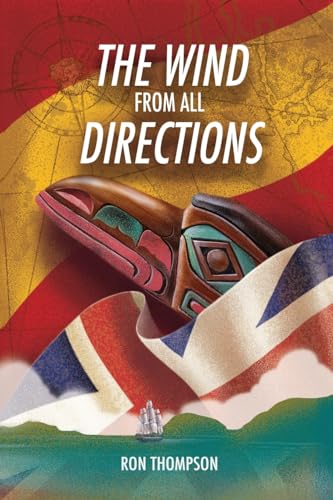The Wind from All Directions
In 1792, Captain George Vancouver is ordered by the British Admiralty to continue exploration of the Pacific Northwest. He is also charged with a diplomatic task for which he feels unsuited: to negotiate sovereignty with the Spanish, already established at Nootka Sound. Further, he must reinforce friendship with Maquinna, chief of the Mowachaht.
Clashes of culture, class, temperament, and translation difficulties with both Maquinna and the Spanish commander, Juan Francisco de la Bodega y Quadra, are inevitable. Maquinna is troubled by violations of tribal tradition and duplicity amongst his own people. Arrogant young midshipmen create mischief. Vancouver is haunted by past mistakes and having witnessed the death of Captain Cook, to whom he knows he will be unfairly compared. He ponders: “To be in command is to be alone.” Nor can he provoke a war between Britain and Spain over a piece of land he considers little more than “a forlorn ledge of mud and broken rock.” Then, one of Quadra’s men is murdered…
There is some advantage if you already have knowledge of the history of the Pacific Northwest, but even so, this novel is complex. It sprawls with scholarly 18th-century detail. The quality of the narrative varies from mundane to excellent. Exchanges of dialogue can be perceptive, acerbic, or comical. Shifts between past and present are not always clear. The secrets and ambitions of the many characters are slow to unwind. To top it all, there are strange passages of magic realism, observations by an omniscient narrator who knows the future.
Apropos the title, this idiosyncratic novel comes at you from all directions, and it takes perseverance to reveal the surprising gems hidden at its core. Once the identity of the mystery narrator becomes clearer, it may help to reread the earlier chapters.










